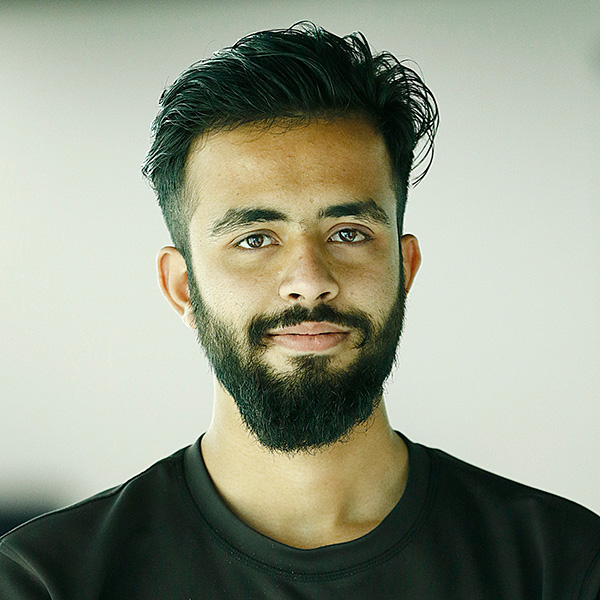National
Study under way to conduct common entrance test and to revise fees of medical colleges
Activists and experts seek recommendations that benefit students, rather than medical colleges.
Nayak Paudel
While a committee of high-level government officials is conducting studies to recommend reforms on the medical education sector, activists and experts fighting for quality medical education have called for measures that benefit students rather than medical colleges.
The committee was formed in the second week of April under Deputy Prime Minister and Minister for Health and Population Upendra Yadav.
The members of the committee include Minister for Education, Science and Technology Giriraj Mani Pokhrel, Chairman of the University Grants Commission Bhim Prasad Subedi, member of National Planning Commission Usha Jha and former chairman of Nepal Medical Council Dr Dharma Kanta Baskota.
According to officials at the Education Ministry, the committee was formed to recommend reforms in medical education, to revise entrance examinations and fee structures, among others.
While Baskota has the responsibility of recommending the government ways to conduct common entrance examination, Jha is holding discussions with the stakeholders on the fee structure.
The government had been planning to conduct a common entrance test for Bachelor of Medicine, Bachelor of Surgery (MBBS) and Bachelor of Dental Surgery (BDS) courses from the previous year but has not been able to implement it.
Last year, a seven-member committee led by the dean at the Tribhuvan University Institute of Medicine, Dr Jagdish Prasad Agrawal, was formed to study the availability of resources to conduct common entrance exams. However, the committee had said there wasn’t enough homework done to hold common entrance exams within the stipulated time.
In 2015, the high-level commission formed under former vice-chancellor of Tribhuvan University Kedar Bhakta Mathema had also suggested conduct common entrance.
“The report’s recommendations include ways to conduct a common entrance examination in a proper manner. The report also suggests ways to make a common academic calendar, academic courses and questions of the entrance examination,” Baskota told the Post.
“With universities and academies conducting entrance examinations at different places and times, candidates are compelled to travel extensively, in a short period, to sit these exams.”
Recently, Tribhuvan University, Kathmandu University and the academies of health sciences have been conducting entrance examinations on their own.
If the idea of a common test is implemented, experts believe that it would allow students to take the entrance examination from a single place.
“Streamlining the entrance examinations currently being held independently, and implementing a common entrance test will help a student in many ways. They would not have to study different courses for different institutions. This would also make the examination more competitive and have greater quality checks,” Mathema, who led a high-level commission to recommend a new medical education policy, told the Post.
“However, the government must ensure a fair entrance and fair selection of candidates.”
As the report has yet to be submitted to the Education Ministry, experts and activists have raised concerns over the fees.
During a meeting of private medical colleges, and the education and health subcommittee of Parliament on June 5, the medical colleges had accepted that they were charging students extra fees stating that the fee structure set by the government was not enough to run the colleges.
“It’s time to revise the fee structure since it hasn’t seen revision in many years. But the revision should not be for increasing the ‘profit margin’ of private medical colleges,” said Mathema.
In October last year, the Ministry of Education held discussions with the concerned stakeholders to hike the fees by 10 percent to adjust for inflation. This however was not implemented.
This time around, members of the new committee have said they are in discussion with students, parents, medical college owners, economic experts, and medical education experts to recommend a justifiable fee structure.
“We are undertaking a feasibility study and conducting discussions with the stakeholders concerned. The inflation rate, along with previous reports on fee structure, is also being studied,” Jha, a member of the planning commission, told the Post. “The report will be submitted by next month.”
Medical colleges within the Valley are allowed to charge Rs 3.85 million for MBBS courses while those outside the Valley can charge up to Rs4.24 million. The fee ceiling for BDS courses is Rs1.9 million.
“The committee should recommend provisions that benefit students. The government should implement such recommendations only. Provisions of medical education should never be meant to benefit private medical colleges,” Dr Govinda KC, a senior orthopaedic surgeon who has staged 16 hunger strikes demanding reforms in the medical education sector, told the Post.
The government had failed to address the agreements reached with KC and to incorporate the recommendations of the Mathema commission in the Medical Education Act, which was bulldozed by the Nepal Communist Party (NCP) lawmakers through Parliament.
“We are not in favour of the forcefully passed Medical Education Act and will not be in favour of new reforms if it is not for the benefit of the general public,” said KC.




 9.83°C Kathmandu
9.83°C Kathmandu














